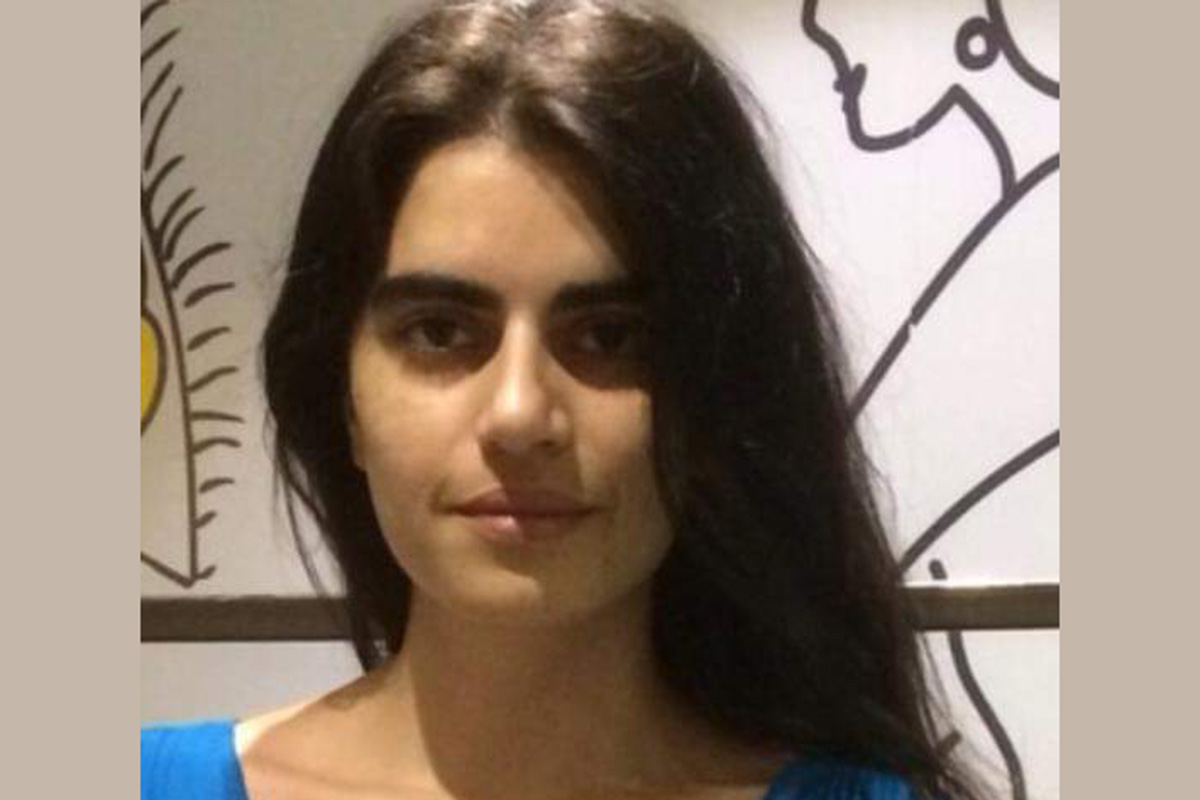I am Tali
I read prose only in the third person,
and only translated prose,
poetry, I also read in Hebrew.
I love Wislawa Szymborska, she copies in written word
the creation
in a brilliant fashion, and was recognized during her lifetime and was not among
the female poets who danced the ‘dance of death in life’
for that I lowered her credit.
I think it’s impossible to tag in one breath! A contemporary poetess with
characters that preserved the myth of the ‘cursed poetesses’. For they are
found only in the underground or tomb
There is no negotiation with this judgement
Mainstreamism repels me.
Bestsellers I do not touch.
I love nonfiction books.
Newspapers do not count at all as the writing and reading genre.
And my therapist I address in the second person singular
while omitting the third degree: “doctor”, it’s ok, it’s acceptable –
many poetesses have sat in my chair in front of him
Anne Sexton, Sylvia Plath,
and those who ended up as their own hangman.
I often write in the first person singular and also to talk
It is
my way to circumvent
myself from afar.
And do not ask what I often write about! I do not like rhetorical questions that belittle
my intellect.
Controversial
I love people who
are controversial
that their polemic is spiced with unambiguity
in doses
that they eat throughout the day.
And that taboo is not only for purposes
of research for them
in the night hours
when the darkness encourages humankind
to communicate
hormone with hormone in the intercourse
of two
at the most!
There are other women
who fertilize a number of men
in a day, and wear a necklace around
their necks with ‘phallic’ stones
by the light of day
they are
the polyandrous.
I love controversial people
like Yeshayahu Leibowitz
who
forces us to see with brutal clarity
the sharp-tonged intonation
that for various reasons was comfortable for us
to evade
he earned Israeli society’s nickname “prophet of the apocalypse.”
He
conceived concepts of philosophical questions
and found in them contradictions
even though many claimed otherwise –
for that, I have solidarity with him
moreover, he did it so
differently from the accepted definition
that stimulates and challenges
my
intellect
his sharply-phrased wording and use
of the paradoxical
could instigate in me
an orgasm
of the sensual type
in the hours when I read
his book
“Five Books of Faith.”
I like being me
I don’t flow continuously
in the water
that you are sipping now
I shock your
digestion
until the body cries out
to vomit
like this poem that is not understood.
Margins of society
I love remote sights
they provide an answer to offer a glance at the lives of human beings on the margins of society,
it’s funny how much transparency there is in them – until I
see my own life within them.
Empty and fearful, the impure and lepers, homosexuals and transsexuals, prostitutes and homeless harlots, junkies
gripped with insanity
those lacking everything, incurable patients,
gangs.
These in these places
with an element devoid of any status – indeed
the status indicates location while the role indicates the active part
It is enough to smell the figurative stench
in remote places
to
understand the departure of these people
from what was once their role before life on the spine that involved
expectations of society
and secondly of their status, where they were before
in society
These are two sides of the coin: a status and a role that no longer attach importance to them in these remote places when they are detached like a banknote to a whore on the margins of society
in an urban alley
In typography, the margins are the blank part that is commonly left between the body text and the edge of the sheet of paper
as is well known, the margins surround the text on its four sides and are usually blank
As in life just not from my angle of view
the core of the page is the text that the margins
delineate
but why wasn’t it mentioned that there are other messages that characterize margins other than being “blank”?
Like
constant headlines,
page numbering or footnotes. In the past it was customary to decorate the margins of manuscripts with illustrations I am sure that even today.
How lovely such a notebook!
Think about it! If it weren’t for the margins that are the page’s pillar, the text would not be
possible
whether the page margins
fill a space of 2.54 cm or less.
But!
Typically, the reader chooses to completely ignore the existence of the margins and continues reading.
That’s how it is in life, too.
About the Author
Tali Cohen Shabtai was born in Jerusalem, Israel. She began writing poetry at the age of six. Her first set of poems were published in the Israeli magazine ‘Moznayim’ when she was fifteen years old. Tali has written three poetry books: “Purple Diluted in a Black’s Thick”, (bilingual 2007), “Protest” (bilingual 2012) and “Nine Years From You” (2018). She is a member of the Hebrew Writers Association and the Israeli Writers Association. Tali’s poems express spiritual and physical exile. She is studying the exile and freedom paradox and her cosmopolitan vision is very apparent in her writings.
